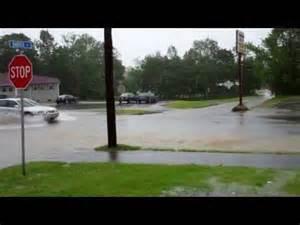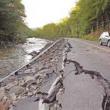Flood Water Damage Insurance - What you should know!
You were woken up at 12 midnight by the sound of a hailstorm that smashes your windows, followed by a torrential rain that refused to stop. Before you knew it, your home has been covered by damaging water. Will your insurance policy cover this loss? That will depend on the type of insurance you chose to purchase and how the water got into your home.
There are basically two policies that deal with damage to your home due to water - a flood insurance policy and a homeowners insurance policy. Losses not covered by one of these may be provided for by the other. Planning ahead can help you know the losses to which your home could be exposed in order to decide whether to buy one or both of these coverage.
Insurance policies differ in the coverage they provide from one homeowner to another. However, there are basic features common to all. You should talk to CROSS INSURANCE - BELFAST about the specifics.
One of the biggest assumptions about Flood Insurance is that you only need it if your home is on tidal waters or overflowing rivers/streams...here is why that is not true:
FLOOD WATER INSURANCE A flood is an excess of water (or mud) on land that is normally dry. The National Flood Insurance Program (NFIP) defines flood to be a general and temporary condition of partial or complete inundation of two or more acres of normally dry land area, or of two or more properties (at least one of which is the policyholder's property) from:
Overflow of inland or tidal waters;
Unusual and rapid accumulation or runoff of surface waters from any source;
Mudflow; or
Collapse or subsidence of land along the shore of a lake or similar body of water as a result of erosion or undermining, caused by waves or currents of water exceeding anticipated cyclical levels.
Flood Insurance is a special cover that is federally backed by the NFIP and available for homeowners, renters and businesses. A standard policy pays for direct physical damage to your insured property up to the replacement cost or actual cash value (ACV) of actual damages or the policy limit of liability, whichever is less. Generally, damage caused by water that has been on the ground at some point before damaging your home is considered to be flood damage. A handful of examples of flood damage include:
A nearby river overflows its banks and flows into your home.
A heavy rain seeps into your basement because the soil can't absorb the water quickly enough
A heavy rain or flash flood causes the hill behind your house to collapse into a mudslide that oozes into your home.
HOMEOWNERS INSURANCE A home insurance policy generally does not provide coverage for flood damage. It provides coverage for many types of water damage to your home. Just the opposite from flood damage, for insurance purposes, water damage is considered to occur when water damages your home before the water comes in contact with the ground. A few examples of water damage include:
A hailstorm that smashes your window, permitting hail and rain free access into your home.
A heavy rain soaks through the roof, allowing water to drip through your attic or ceiling.
A broken water pipe spews water into your home.
Even if flood or water damage is not covered by your homeowners insurance policy, losses from theft, fire or explosion resulting from water damage is covered. For example, if a nearby creek overflows and floods your home, and looters steal some of your furnishings after you evacuate, the theft would be covered by your homeowners insurance because it is a direct result of the water damage. However, the flood damage would most likely only be covered if you have flood insurance.
Flood Insurance is usually sold and serviced by insurance companies, and backed by the Federal Government. More than 80 insurance companies sell flood insurance. In most cases, the same insurance company that sold your homeowners insurance policy can help you with your flood policy.
CALL CROSS INSURANCE - BELFAST at 207-338-5430/1-800-457-5430! We are here to help!




























